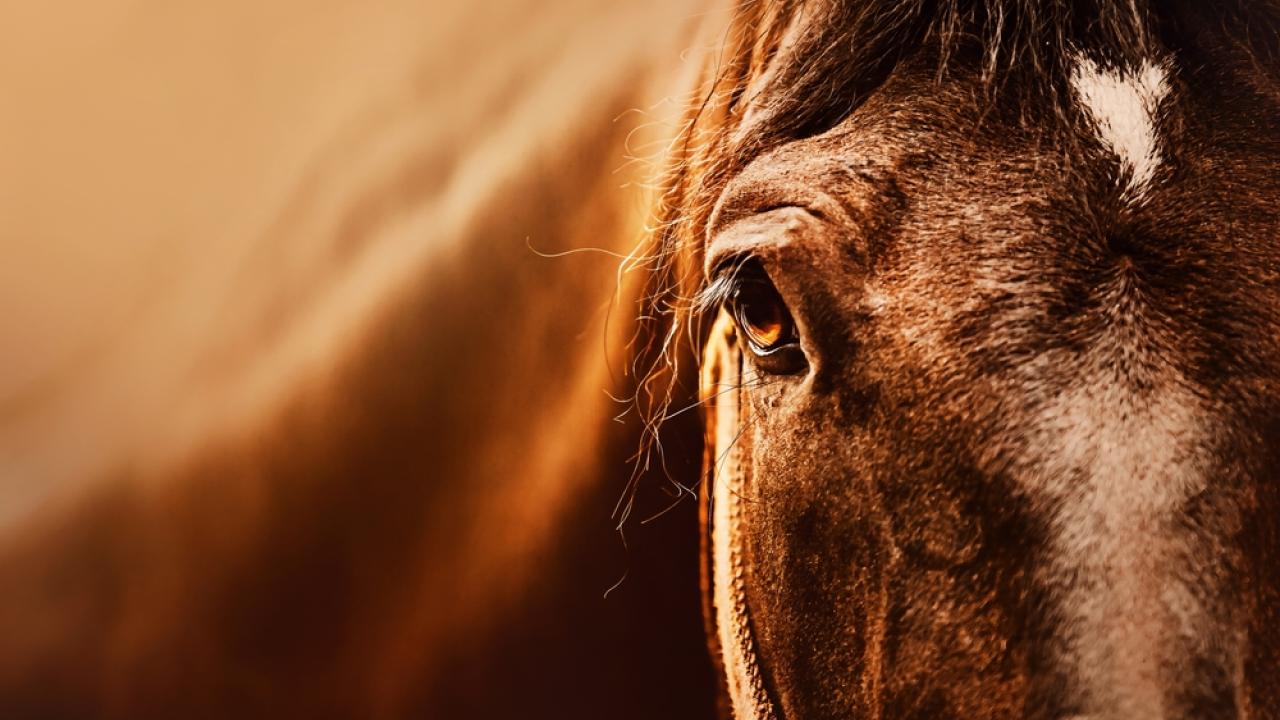
A retrospective study suggests Standardbred horses are predisposed to cataracts
A collaborative study between Cornell University and University of California-Davis investigated the prevalence of congenital/juvenile cataracts in different horse breeds and highlighted an overrepresentation of Standardbred horses among affected individuals across two hospital populations, suggesting a genetic predisposition to this disorder in the breed.
The study looked at medical records from horses seen at the Cornell University Equine Hospital and the University of California-Davis Large Animal Clinic over a period of 20 and 30 years, respectively. Researchers identified a total of 101 horses affected by congenital or juvenile cataracts at both institutions, with Standardbred horses comprising 32.5% and 4.3% of cataract cases at Cornell and UC Davis, respectively.
American Quarter Horses, Andalusians, and Rocky Mountain Horses were also overrepresented among the cases seen at UC Davis, suggesting a genetic predisposition to cataracts in these breeds as well. Rocky Mountain Horses are known to be affected with multiple congenital ocular anomalies (MCOA), a genetic disorder that can include cataracts, so it was not surprising to see an overrepresentation of this breed among the cases. Conversely, Thoroughbreds were underrepresented, suggesting the US population of Thoroughbreds may be less prone to inherited cataracts.
Dr. Kelly Knickelbein, the lead author of the study, is currently an assistant professor of ophthalmology at Cornell University, and her training in genetics occurred at the UC Davis Veterinary Genetics Laboratory during her internship and residency at UC Davis. She noted,
The study underscores the importance of pre-breeding ophthalmic examinations and breed-specific genetic investigations to promote ocular health across horse breeds.”
Dr. Noah Plotsker, the first author on the study, also noted
This study is the first step to gain a better understanding of inherited cataracts in horses. Next, we can work to collect samples of affected and unaffected horses from breeds that are overrepresented to begin to understand what genetic mechanisms are involved.”
The researchers are continuing their collaborative investigation and looking to enroll additional participants.
Understanding the precise genetic mechanisms behind this heritable disorder across breeds will allow for marker-assisted selection to reduce the occurrence of cataracts in horses.”, noted Dr. Bellone, equine researcher and director of the UC Davis Veterinary Genetics Laboratory.
If you are interested in participating, please reach out to Dr. Knickelbein or Dr. Bellone. The full publication is available here.
